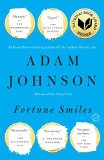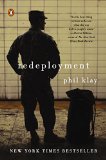Summary | Excerpt | Reviews | Beyond the book | Read-Alikes | Genres & Themes | Author Bio

Stories
by Tamas DobozyIn the wake of the Budapest Offensive – one of World War II's most prolonged and deadliest attacks (see Beyond the Book) – thousands of Hungarians were left displaced and emotionally splintered. In his collection of creative and incredibly compelling short stories, Siege 13, Tamas Dobozy explores the empty, often surreal state of being caused by cultural trauma and its effect on (and interaction with) subsequent generations. "Trauma," says Dobozy in an interview, "…always seems so specific and at the same time so unfathomable." In stories that switch between 1940s Hungary and contemporary life in North America, his characters – all appealingly unique, though not necessarily trust-worthy – use coping mechanisms that are at times humorous, mysterious, and woefully sad.
Dobozy's writing has a strong and classic feel to it, and it is apparent that he knows his craft. His stories walk the fine line between the everyday and the fantastical, and the curious actions of his characters echo a loneliness that is sometimes pitiable and other times cruel, but always interesting. For example, in "The Atlas of B. Görbe," the narrator, a struggling writer, disappointed by the isolation he feels in New York City, reaches out to a distant family friend, a famous author named Görbe who used to date his aunt back in Budapest in the 1960s. The relationship between the two men, and the alternation between the simultaneous care and resentment they have for one another, creates a kind of suspense reminiscent of Nabokov's The Visit to the Museum.
Dobozy's work explores how people cope with trauma on both a personal and a cultural level. Themes of transformation, panic, and escape take different forms – divorce, storytelling, traveling – and it is fascinating to see how Dobozy imagines the emotional aftermath of the Budapest Offensive, not just in the immediate generation, but in the generation after that. He includes elements of the fantastical and surreal, which allows readers to experience that disorientation first-hand. For example, in "The Animals of the Budapest Zoo, 1944-1945," wolves, zebras, snakes and exotic birds roam the streets of Budapest while World War II rages in the background:
And so it was neither love nor logic that led them around the zoo that night but drunkenness, jingling keys pulled from Teleki's walls, moving past the carcasses in the monkey house, many of them frozen to the bars they'd been gripping when their heat gave out… or in the tropical aviary, the brightly coloured feathers gone dull on the curled forms… or in the aquarium, where someone… tried to chip some of the fish out of the ice, whether in some pathetic attempt to thaw them back to life or to eat them no one could guess… And when it was over, when there wasn't a single cage left to open, an animal to free… Gergö and Zsuzsi freed themselves, waltzing out the front gate straight into a warning shout, a halting laugh, a hail of machine-gun fire.
Dobozy's choice to write this book as a collection of short stories (as opposed to a novel) reinforces this scattered, ruptured feeling. Though all of the individual pieces belong together, the work isn't a cohesive, linear body of literature. There isn't a sense of a beginning, middle, and end. Instead, the stories simply offer quick glimpses into his characters' lives and Dobozy leaves it to the reader to figure things out. Likewise, jumping between different countries and decades works to disorient the reader's sense of time and place. "I think this form is better able to present the fragmentary aspect of history… These stories zero in on an instant while the larger currents of causality are left forever in question," Dobozy says.
I highly recommend Siege 13 to those who enjoy the occasional glimpse into the fantastical, while keeping both feet on the ground. Dobozy writes about cultural trauma and the re-creation of identity with an artistic and creative hand, and he simultaneously challenges and entertains readers. This book will be especially appealing to those interested in Eastern European history.
A survivor of the Siege of Budapest talks of his experience in the video below:
![]() This review
first ran in the April 3, 2013
issue of BookBrowse Recommends.
This review
first ran in the April 3, 2013
issue of BookBrowse Recommends.

If you liked Siege 13, try these:

by Adam Johnson
Published 2016
Winner of the Pulitzer Prize for his acclaimed and bestselling novel The Orphan Master's Son, Adam Johnson is one of America's most provocative and powerful authors. In Fortune Smiles - his first book since Orphan Master - he continues to give voice to characters rarely heard from, while offering something we all seek from fiction: a new way of ...

by Phil Klay
Published 2015
Redeployment takes readers to the frontlines of the wars in Iraq and Afghanistan, asking us to understand what happened there, and what happened to the soldiers who returned.
Your guide toexceptional books
BookBrowse seeks out and recommends the best in contemporary fiction and nonfiction—books that not only engage and entertain but also deepen our understanding of ourselves and the world around us.